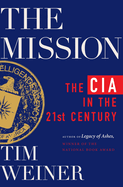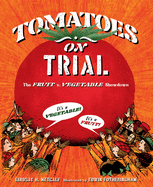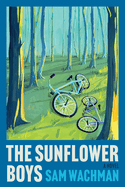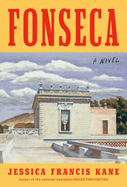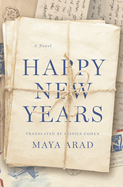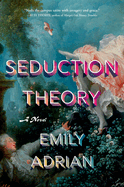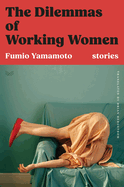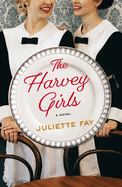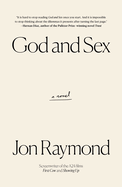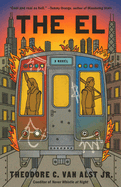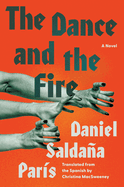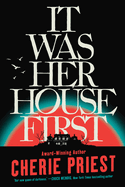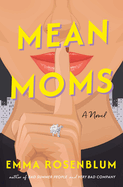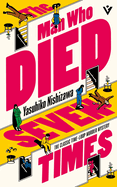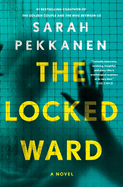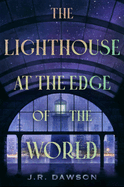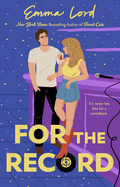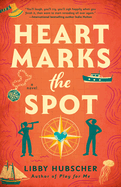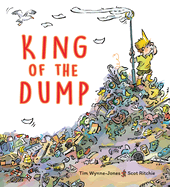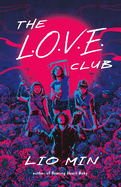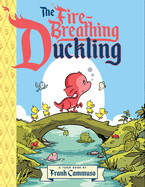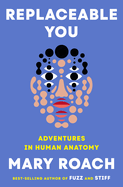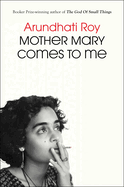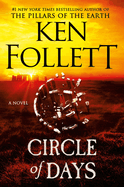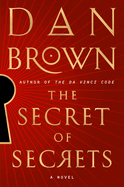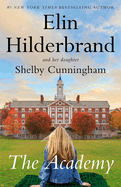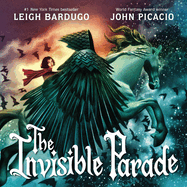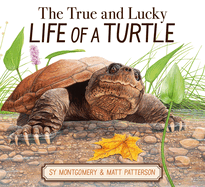Friday, August 15, 2025
We have a whole new crop of excellent reading suggestions for your weekend and beyond! In Cleyvis Natera's "propulsively paced" novel The Grand Paloma Resort, two sisters employed at an exclusive luxury hotel in the Dominican Republic face off with entitled tourists, criminal charges, and a category-five hurricane. And in The Sunflower Boys, Sam Wachman's "beautiful, heartbreaking debut," two brothers in Ukraine trek through boyhood hopes and fears, as well as the treacherous landscape of a military invasion, to reunite with the people they love most. Meanwhile, younger readers can swear in for the "deliciously fun historical" courtroom drama of Lindsay H. Metcalf's Tomatoes on Trial, illustrated by Edwin Fotheringham.
The Sunflower Boys
by Sam Wachman
Sam Wachman's beautiful, heartbreaking debut novel, The Sunflower Boys, follows a pair of young brothers whose world is upended by the 2022 Russian invasion of Ukraine. As they travel west, hoping to escape the chaos of war and reunite with their father, who has been working in the U.S., narrator Artem captures details of their journey in his sketchbook, creating a poignant account of what he has loved and lost.
Wachman begins his story in peacetime, when Artem's life in Chernihiv, north of Kyiv, is blessedly ordinary. He walks to school with his little brother, Yuri, and best friend, Viktor. Artem is mostly content, but he's starting to wonder two things: one, what it truly means to be a man, and two, if his growing feelings for Viktor will make him a fundamentally flawed man. When Russia launches its attack on Ukraine, Artem and Yuri flee their city. The peaceful, almost pastoral, quality of the novel's early chapters serves to heighten the jarring contrast with the sudden upheaval destruction of war. Wachman depicts the brothers' harrowing journey through small, stark details: blistered feet and clothes stiff with grime, Yuri's stuffed crocodile, and Artem's precious sketchbook, which he carries everywhere, even when he can't draw a thing. As Artem tries to care for Yuri, he continues to wrestle with his feelings for Viktor and his identity in an increasingly chaotic and confusing world.
Tender and poignant, shot through with deep sadness and wry humor, The Sunflower Boys is a bittersweet rendering of life in modern-day Ukraine, the effect of war on ordinary lives, and a young person discovering who he is. --Katie Noah Gibson, blogger at Cakes, Tea and Dreams
Discover: Sam Wachman's bittersweet, beautiful debut novel follows a pair of brothers displaced by the war in Ukraine, through the eyes and sketchbook of the older brother, an artist.
Fonseca
by Jessica Francis Kane
In 1980, noted British writer Penelope Fitzgerald wrote an essay entitled "Following the Plot," alluding to a trip she and her five-year-old son, Valpy, took to northern Mexico in 1952, at the invitation of two wealthy, elderly women in search of an heir to the fortune from their family's former silver mine. Taking Fitzgerald's barebones description of that strange journey as her starting point, Jessica Francis Kane (Rules for Visiting) has vividly imagined that experience in Fonseca, creating a story that's steeped in atmosphere as it explores themes of class and creativity, seasoning that mix with a touch of romance and even a bit of a ghost story.
When Penelope arrives in Fonseca, home to spinster Doña Elena and her sister-in-law Doña Anita, she finds she's only one of a collection of "Pretenders" to the expected inheritance. That group gathers nightly to jostle for the favor of the eccentric women. For Penelope, the pressure of a competition she finds distasteful is leavened by the presence of the famed painter Edward Hopper and his wife, Jo.
Kane paints a revealing, multidimensional psychological portrait of Penelope Fitzgerald, one that's enriched by information she gained from e-mail exchanges with the adult Valpy and his younger sister Tina, excerpts of which appear periodically in the text. It's an unusual, but effective, technique that doesn't detract from the novel's appeal as a work of fiction. Twenty-four years before she published her first novel, the Fitzgerald who appears in Fonseca is a deeply sympathetic character: a loving mother, anguished wife, and writer in whom the fires of literary ambition are smoldering, waiting to burst into flames. --Harvey Freedenberg, freelance reviewer
Discover: Jessica Francis Kane skillfully imagines British novelist Penelope Fitzgerald's unusual journey to Mexico in 1952.
Happy New Years
by Maya Arad, transl. by Jessica Cohen
Maya Arad's moving 12th novel, Happy New Years, charts the triumphs and challenges of an Israeli woman living in the U.S. through five decades of annual Rosh Hashanah letters to her college friends back home.
After graduating from teachers college, Leah Moskovich moves to Massachusetts, where she must quickly adapt to a new language and an entirely new culture. As the years pass, Leah writes faithfully to her classmates, detailing her experiences with relationships and motherhood; her careers in education and real estate; and her eventual move to California, where she spends much of her adulthood. A relentless optimist, Leah is always more inclined to celebrate her joys and accomplishments than dwell on darker realities. However, her private postscripts to her best friend, Mira, reveal the more complicated nuances, including her continual struggle with self-esteem and the long-term echoes of some difficult early circumstances. As she chronicles her hopes and troubles, Leah also comments on world events, such as 9/11 and the 2008 financial crisis. Her tart, often wryly humorous voice provides a fascinating glimpse of her experience as an Israeli immigrant. As she ages, Leah becomes more reflective and more honest with herself, sharing deeper insights into her life as well as the times that affected her so profoundly.
Wise, absorbing, and relatable in their small details and messy emotions, Leah's letters create a richly layered portrait of a woman determined to build a satisfying life for herself. --Katie Noah Gibson, blogger at Cakes, Tea and Dreams
Discover: Maya Arad's moving 12th novel charts the joys and struggles of an Israeli woman living in the U.S. through five decades of her annual letters to friends back home.
Seduction Theory
by Emily Adrian
A sophisticated ivory tower drama holds a magnifying glass up to the emotional cracks in a marriage between two academics in Seduction Theory by Emily Adrian. Adrian's marvelous third novel for adults takes the intriguing form of a Masters of Fine Arts thesis crafted by a student infatuated with her adviser and considers what, in essence, constitutes infidelity in a long-established relationship.
The graduating student is Robbie and her thesis adviser is Simone, the charismatic star of the creative writing department at Edwards University. Simone is happily married to Ethan. They are colleagues in the same department, sexual soulmates, and each other's adoring best friend. With Robbie as narrator, Seduction Theory follows the course of an intense summer friendship with Simone that leaves Robbie wanting much more. Robbie doesn't know if she wants to sleep with her thesis adviser "or be her." Meanwhile, Ethan's blossoming friendship with the department secretary, Abigail, takes off that same fateful summer.
Adrian (Everything Here Is Under Control; The Second Season) has equipped Robbie with a persuasive, entertaining voice tinged with scorn and wicked humor. Therein lies the captivating pull of the novel, with its close observation of the boundary-crossing professor-student friendship, scandalously intimate details of Ethan and Simone's marriage, and the devastating repercussions of Ethan's fall from grace.
As with most relationships, Simone and Ethan have their separate inner lives--the last frontier of privacy in a marriage as blissfully entangled as theirs. It is here that Robbie unleashes her imagination, merging fact and fiction to craft a story that is, at its core, a breathtaking act of betrayal. --Shahina Piyarali
Discover: A sophisticated ivory tower drama takes the intriguing form of a Masters of Fine Arts thesis crafted by a student who is infatuated with her charismatic adviser.
The Dilemmas of Working Women: Stories
by Fumio Yamamoto, transl. by Brian Bergstrom
When the late Fumio Yamamoto's The Dilemmas of Working Women won the coveted Naoki Prize in 2001 in Japan, its bestselling success was "a phenomenon," writes Brian Bergstrom, who meticulously translates this audacious five-story collection populated by women bluntly eschewing expectations. The narrators here--four women, one man--each face complex decisions on the cusp of major change.
Tradition proves potentially stifling in the titular story when Mito's longtime boyfriend announces on her 25th birthday, " 'Well, I guess it's about time. We can get married.'... he said it as if granting permission." Mito once thought wifehood should happen by 25, but the possibility of actual nuptials only engenders reasons to refuse. In "Here, Which Is Nowhere"--the collection's most nuanced story--Maho is trapped in an endless cycle of caring for and serving others: her husband of 21 years, her disgruntled widowed mother, her dismissive almost-adult children. Maho's rage builds in increments, but finding some semblance of release does little to improve her daily life.
The ending "A Tomorrow Full of Love"--the quintet's sweetest, with the single male narrator--moves between an izakaya owner's unpredictable interactions with his free-spirited live-in lover and his utter devotion to the tween daughter he's allowed to see every three months.
That Yamamoto writes solely in first-person cleverly encourages immediate engagement, creating an instant gateway into the intimacies of these characters' lives. Throughout her fictional universe, marriage is the biggest loser, particularly for women, something to avoid or escape. In upsetting and challenging the venerable institution, many of Yamamoto's empathic characters--even a quarter-century after their debut--remain timeless figures of strength and resilience. --Terry Hong
Discover: Fumio Yamamoto's superb five-story collection, The Dilemmas of Working Women, eschews and challenges the stifling expectations of traditional women's roles.
The Harvey Girls
by Juliette Fay
Juliette Fay's winsome eighth novel, The Harvey Girls, follows two young women who become colleagues--and, eventually, much more--as they work alongside one another in the United States' first hospitality chain, along the Santa Fe Railroad.
Charlotte Crowninshield turned her back on her Boston Brahmin family when she married a handsome professor. Now, fleeing a marriage gone terribly wrong, she takes a new name and lands a job working for the Fred Harvey Company. She travels to Topeka, Kan., to train as a waitress at the company's flagship "Harvey House." Charlotte's roommate, Billie MacTavish, is the sheltered Nebraskan daughter of Scottish immigrants, forced to leave home and lie about her age to secure her position as a Harvey Girl. Though they dislike each other on sight, Billie and Charlotte must learn to live and work together. The railroad, and their lives as Harvey Girls, will take them both to places they never imagined.
Fay (The Tumbling Turner Sisters) paints a striking historical portrait of 1920s America, detailing the bustling train stations and well-appointed restaurants. Despite their prickly relationship, Billie and Charlotte stand by one another through tough days and several harrowing experiences. As Charlotte's past catches up with her and Billie debates whether to reveal her true age, the women must rely on their Harvey Girl training--plus their inner grit and compassion--to support each other and step into their futures.
At once a fascinating slice of little-known 1920s history and a tribute to staunch female friendship, The Harvey Girls is as satisfying as a slice of lemon meringue pie served in a Harvey House dining room. --Katie Noah Gibson, blogger at Cakes, Tea and Dreams
Discover: Juliette Fay's winsome eighth novel chronicles the adventures and personal growth of two young women working alongside each other as waitresses in the 1920s.
God and Sex
by Jon Raymond
Are miracles a thing? Ask a secular humanist, then ask someone more pious for two different but equally definitive answers. Ask Arthur, the narrator of God and Sex, Jon Raymond's easygoing assumption challenger of a novel, and the answer is more nuanced. One expects nuance from Raymond (Freebird), co-screenwriter of many Kelly Reichardt films, including Wendy and Lucy and First Cow. In this novel, 40-ish Arthur is the author of four "spirituality-cum-science" books that fared poorly. The last one's failure plunged him into such a "cauldron of self-doubt" that he moved back to his childhood home in Oregon. But he has an idea for a fifth work, "a small, lyrical book in praise of trees." He meets Phil French, a forest ecologist, who helps him with research. Their friendship develops a wrinkle: Arthur falls for Phil's wife, Sarah, a high school librarian.
The inevitability of Arthur and Sarah's affair is as fraught as one might expect, but it gets even more complicated when Sarah leaves for a weeklong mindfulness retreat at Mount Hood. An environmental disaster forces nonbeliever Arthur to pray for a beneficial outcome. Therein lies the richness of this quietly intense novel. What begins as a conventional domestic drama reaches greater heights as Raymond explores important themes, including environmental degradation, climate change, infidelity, the agony of artistic creation, and the concept of faith. Raymond's light touch makes what could have been heavy-handed moralizing instead a gently thrilling meditation on life and virtue. --Michael Magras, freelance book reviewer
Discover: God and Sex is a morally nuanced novel about an Oregon writer, the forest ecologist who helps him research a book on trees, and the ecologist's wife, with whom the author falls in love.
The El
by Theodore C. Van Alst Jr.
Theodore C. Van Alst Jr. (Sacred Smokes; Sacred City) offers a love letter to the city of Chicago via a single-day odyssey in The El, an expansive novel featuring young gang members on a circular journey through an urban landscape. With strong imagery, dreamlike sequences, and gritty considerations of family, love, spicy potato chips, and gun violence, this unusual story will capture and hold the imagination.
On an August day in 1979, teenaged Teddy wakes up early, eats a few buttered tortillas, and gets ready for a momentous event. He will lead 18 fellow members of the Simon City Royals across town via Chicago's elevated train (the El) to a meeting with another "set" of the gang and many others, where a new alliance formed in prison would be applied on the outside. The new Nation will include old enemies, but Teddy is a team player. It is a day of high stakes, and while they all share trepidations, not everyone shares Teddy's hopeful outlook. Teddy's Native identity matters because race is a question for the new Nation, spoken of but not exactly on the official agenda.
The El is utterly intriguing at every turn, shifting pace from high-drama action scenes to contemplative ones. Van Alst portrays a strong sense of both time and place as his characters grapple with race, class, and culture. He gives us tragedy as well as beauty, and a sharp, loving portrait of a very particular big city, with Teddy "riding all the way back toward the neighborhood, window wide open, warm wind howling in, and me in love with everything we could ever be." --Julia Kastner, blogger at pagesofjulia
Discover: Young gang members in 1979 Chicago take public transportation across the city on a single, important day in this shape-shifting, kaleidoscopic novel of big risks and dreams.
The Dance and the Fire
by Daniel Saldaña París, transl. by Christina MacSweeney
Daniel Saldaña París (Planes Flying over a Monster; Ramifications) eerily constructs a deconstructing world in The Dance and the Fire, a deft novel told in three voices and translated from the Spanish by Christina MacSweeney.
Mexico is rife with wildfires, and the city of Cuernavaca is especially affected, with its citizens normalized to a state of perpetual drought, smoke, and ash. Within this smoldering environment are three childhood friends, now in their 30s and dealing with various relationship and body issues. Natalia is a choreographer enraptured with bromeliads (she dotes over 12 varieties) and the phenomenon of choreomania, also known as the dancing plague or hysteria. She lives with an aging painter and eventually crosses paths with Erre, her one-time boyfriend. Erre has returned to Cuernavaca after a divorce, and now obsesses over the pains afflicting his body. Conejo, an amiable conspiracy theorist, lives with his blind father and mostly does drugs and tries to stay inside. Conejo and Natalia have stayed in loose touch over the years, but with Erre back, the past comes to the forefront, revealing complex dynamics and calamitous consequences.
París is not a straightforward storyteller, which will thrill fans of books such as Samanta Schweblin's Fever Dream or Juan Rulfo's Pedro Páramo. Indeed, París plays with the ideas of malleable memory, gossip, rumor, myth, and more, even writing, "Where did that story originate? There's no way to weed out the legends, fantasies, and downright lies from history." The Dance and the Fire is a thrilling, macabre read. --Nina Semczuk, writer, editor, and illustrator
Discover: The Dance and the Fire is an eerie, erudite addition to modern folk horror, ideal for fans of Samanta Schweblin's Fever Dream.
Mystery & Thriller
The Grand Paloma Resort
by Cleyvis Natera
The Grand Paloma Resort by Cleyvis Natera (Neruda on the Park) is a novel of race, class, secrets, and striving, set within a luxury resort staffed by struggling locals amid the natural beauty of the Dominican Republic.
Laura has been her sister Elena's caretaker since they were 14 and four years old when their mother died. The Grand Paloma has been Laura's career and lifeline. But Elena persists, in Laura's eyes, in slacking, taking Ecstasy and partying while working as a babysitter at the resort. In the novel's opening pages, a young child in Elena's care--from a family of great wealth and privilege--has been badly injured. It falls to Laura, yet again, to clean up: Elena must be protected from criminal charges, and the resort from bad press.
But this time, despite Laura's experience in saving the day, a bad situation spirals. Elena thinks she sees a way out by accepting a large sum of money from a tourist in exchange for giving him access to two young local girls. Although she initially believes the girls won't come to harm, the crisis worsens when the children go missing. All of that coincides with an approaching category-five hurricane. A larger cast of already marginalized resort employees are endangered in a ripple effect, and Laura's career is at risk.
Natera deftly splices into this narrative the history of the Dominican Republic and the plight of Haitian workers. With a propulsively paced plot and heart-racingly high stakes, The Grand Paloma Resort interrogates capitalism and exploitation through a community's concern for two little girls. The result is exhilarating, entertaining, and thought-provoking. --Julia Kastner, blogger at pagesofjulia
Discover: Missing children and a category-five hurricane converge in desperate circumstances at an exclusive luxury resort in the Dominican Republic in this heart-wrenching novel.
You Belong Here
by Megan Miranda
A college campus that's both welcoming and forbidding, a single mother's unconditional love for her daughter, and years of secrets swirl in Megan Miranda's absorbing You Belong Here.
A pervasive dread hovers over Beckett Bowery, who tries to handle her complicated emotions about keeping her daughter, Delilah, safe and allowing the 18-year-old to make her own decisions, all while hiding her own past. Beckett grew up in the mountain town of Wyatt Valley, Va., where her parents were professors at Wyatt College. She's even named after the building where they taught. It was expected that she would attend the college, but she was asked to leave during her senior year there, after two local men died in a fire in an underground tunnel at the college. At first, Beckett was a suspect, but blame shifted to her roommate, who disappeared.
Now a ghostwriter in North Carolina, Beckett is appalled that her daughter secretly applied to Wyatt and earned a full scholarship. Beckett views the town and college as places of danger but is powerless to stop Delilah, who's legally an adult. Beckett's fears are realized when Delilah briefly vanishes in the nearby woods during a freshman initiation and a body is found nearby.
Miranda (The Last House Guest; Fracture) skillfully shows how the past has a hold on Beckett, who knows that 20 years later, she remains suspected of starting that fire. Family dynamics compellingly stir the plot. Beckett's fraying relationship with Delilah echoes Beckett's parents' relationship with her. You Belong Here delivers elevated suspense. --Oline H. Cogdill, freelance reviewer
Discover: A single mother's past haunts her daughter, who is attending the same college where her mother was a suspect in a tragedy 20 years before, in this elevated thriller.
It Was Her House First
by Cherie Priest
Full of lush details and eerie mysteries, It Was Her House First by Cherie Priest (Grave Reservations) is a ghost story for HGTV fans.
Flush with her brother's life insurance payout and mourning his loss, Ronnie Mitchell purchases a decaying mansion that was once home to silent film star Venita Rost with renovation in mind. Though it's not yet her dream house, Ronnie is in love and determined to make it work, despite the lack of plumbing and electricity, abundance of mold and rotting wood, and the fact that the last person who tried to renovate the house died suddenly.
Ronnie soon discovers a creepy basement shrine to Venita that holds the actress's diary. With no other evening entertainment, Ronnie devours Venita's innermost thoughts and fears leading up to her tragic end. As more and more bone-chilling and strange encounters transpire, Ronnie realizes she is more than just another renovator and begins to understand that she must make peace with the house's past inhabitants to survive.
Priest merges the magical with the natural, transporting readers into not only the dilapidated house with its commonplace dangers but also all its former splendor. The novel's multiple perspectives, in the 1930s and the present day, draw readers into the lives of the characters. Through Priest's precise prose, the scent of rotting carpet, the taste of a strong gin drink, and the sound of a child's laughter come alive. It Was Her House First is an atmospheric, heartbreaking novel of loss and shattered trust that will make readers take a second glance at old, crumbling houses and wonder what secrets they could hold. --Alyssa Parssinen, freelance reviewer and former bookseller
Discover: This atmospheric ghost story for HGTV fans follows a woman who must make peace with the past inhabitants of her dream house if she is to survive renovating it.
Mean Moms
by Emma Rosenblum
Mean girls have to grow up sometime, and when they do, they may well end up like the calculating, self-centered, secret-keeping, and extravagantly entertaining mothers of Emma Rosenblum's Mean Moms.
This satirical thriller revolves around Atherton Academy, a top Manhattan private school that seems to bring out bad behavior--not in its students but in their parents. At drop-off on the first day of the new school year, a clutch of moms gossip about a newcomer to the community: Sofia Perez, a divorcée who has recently moved from Miami to New York with her two kids, now Athertonians. After a mom invites Sofia into her friendship cluster, bad things start happening: one mom gets knocked down by a guy on an electric scooter; a man robs everyone at gunpoint at the opening of another mom's "sound bath spa"; and so on. Nothing like this happened before Sofia came on the scene. Surely she's to blame?
Rosenblum (Bad Summer People; Very Bad Company) presents a hilariously and obscenely privileged world--there seems to be a reference to a luxury brand for every punctuation mark. The novel's perspective roves as Atherton's legendary theme parties outdo one another for conspicuous consumption; meanwhile, the narrative slow-builds to the mayhem promised in the prologue. Throughout Mean Moms, readers get the sense that, while the delicious characterizations are heightened--one mom sees Atherton as the "key to the Ivies, which, most annoyingly, you couldn't buy your way into nowadays"--they're not heightened by much. --Nell Beram, author and freelance writer
Discover: Bad things keep happening to the ultra-privileged moms at a top Manhattan private school in this extravagantly entertaining satirical thriller.
The Man Who Died Seven Times
by Yasuhiko Nishizawa, transl. by Jesse Kirkwood
Yasuhiko Nishizawa's first novel in English, The Man Who Died Seven Times, engagingly translated by Jesse Kirkwood, arrives 30 years after its 1995 Japanese publication having lost none of its quirky charm. Other than the absence of cell phones and digital screens, Nishizawa's "classic time-loop murder mystery" remains timeless entertainment.
Sixteen-year-old Hisataro Oba is the youngest in his complicatedly dysfunctional family. Each New Year's Day--at least since a few years back--the three generations gather at wealthy Grandfather's mansion, each member color-coded in tracksuits and chanchanko jackets. After being an abusive wastrel to his three daughters--Kamiji, Kotono, Haruna--Grandfather mended his squandering ways and created a major corporation worth a staggering fortune. Only Kotono stuck around, positioning her to inherit everything. Kamiji and Haruna are maneuvering for their share, hoping to install one of Kamiji's three sons (including Hisataro) or one of Haruna's two daughters as successor. Meanwhile, Hisataro has a "troublesome 'condition' " he calls "the Trap": getting stuck in an unpredictable, loop--"one full day, from midnight to midnight"--that repeats nine times. Of course, it hits this New Year's, and Grandfather ends up dead in the second loop. Can (should?) his life be saved?
Hisataro is a delightfully chatty narrator, sharing every thought, examining every angle, explaining every option. He may be biologically 16, but his "mind is at least thirty years old... a mathematically provable fact" given his "condition." With insight and humor, this "jaded old man" guides readers to a comical "quagmire" of a finale: mysteries are solvable, families not so much. --Terry Hong
Discover: Yasuhiko Nishizawa's "classic time-loop murder mystery," The Man Who Died Seven Times, may be 30 years old, but it has lost none of its clever, comical charm.
The Locked Ward
by Sarah Pekkanen
Sarah Pekkanen's The Locked Ward is a twisty novel of psychological suspense with an eerie bond between twin sisters at its heart.
The Locked Room alternates between the points of view of Georgia Cartwright and Mandy Ravenel. Georgia is the adopted daughter of a very wealthy family who is being held in a psychiatric ward and accused of murdering her younger sister, Annabelle, while Mandy runs a bar she inherited from her adoptive parents. In the novel's opening pages, Mandy learns that Georgia is actually her twin sister, separated at birth, and that Georgia wants to meet with her. During the visit, Mandy feels an instant cellular connection with her sister, who insists that she is innocent and begs Mandy for her help.
Pekkanen (Things You Won't Say; Catching Air; The Golden Couple with Greer Hendricks) expertly guides readers through the left turns and twisted corners of her compelling story, contrasting the lives of the sisters in short, strobing chapters. As Mandy uncovers dark family secrets, Georgia contends with hidden enemies inside her ward. All the while, questions of whether Georgia is manipulating Mandy and why Mandy seems so game to dive into Georgia's life thrum under the surface. Pekkanen explores the complex and sometimes spooky connection between the two with a keen eye and examines the effects of privilege and entitlement--or lack of it---on each of their lives. The Locked Ward delivers on that all-important suspense element--its final twist is a doozy. --Debra Ginsberg, author and freelance editor
Discover: The uncanny bond between twin sisters, one of whom is accused of murder, is at the heart of The Locked Ward, a fast-paced, twist-filled thriller.
Science Fiction & Fantasy
The Lighthouse at the Edge of the World
by J.R. Dawson
J.R. Dawson's second novel, The Lighthouse at the Edge of the World, is an atmospheric and enthralling story of grief, love, and choice.
Charlie Connor is mourning the loss of her sister, Sam, who died in a mass shooting, and trying to care for her father, who has withdrawn into himself. Charlie started seeing ghosts after Sam died, and she has spent the past six months carrying sheet music of an unfinished song Sam composed all over Chicago in an attempt to draw out her sister's ghost. Nera Harosen lives in the Station, a midway point situated between the city and the lake for souls on their way to the afterlife. She spends her days helping her father keep malicious spirits known as Haunts out of the Station while he ferries souls across the lake. When Charlie follows the sound of her sister's song and discovers the Station, both women's realities are shattered. Nera becomes aware of her corporeal body in ways she never imagined possible, but she would have to forfeit her duty to follow her heart and live with Charlie. Charlie's piano playing strengthens the flickering Station light, but she would have to abandon her life to help keep it burning bright. As they each pursue their goals and even gain sympathy for the Haunts, long-hidden secrets threaten to destroy their worlds.
The novel's sapphic romance develops alongside the slowly unfolding plot that draws on Greek and Jewish mythology and grapples with themes of loss, duty, and marginalized identities. Dawson (The First Bright Thing) creates an eerie, quiet atmosphere throughout, which makes the showdown scenes even more explosive. --Dainy Bernstein, freelance reviewer
Discover: This atmospheric, enthralling novel follows two women in a way station between life and death as they discover dark secrets and great joy, and fight for their right to become who they want to be.
Romance
For the Record
by Emma Lord
Emma Lord's sharp, sweet second rom-com for adults, For the Record, follows two ex-rival musicians forced to collaborate on a joint comeback album. Pop star and glitter fanatic Mackenzie Waters is terrified to perform after a major vocal surgery changed her sound, and former punk-rock front man Sam Blaze is content co-parenting his son, Ben, with his bakery-owning ex and her wife. But their fans--and their record label--haven't forgotten the sparks that flew onstage when Sam's band, Candy Shard, and Mackenzie's pop-diva trio, Thunder Hearts, toured together.
Lord (The Break-Up Pact) switches between Sam's and Mackenzie's perspectives to plumb the depths of their relationship: the onstage-offstage rivalry, the misconceptions, and the witty repartee that (barely) concealed a crackling mutual attraction. Both protagonists examine their reluctance to let anyone in and the push-pull of desire and fear familiar to pop music fans and anyone who's ever fallen madly in love. Lord also comments on the music industry and its tendency to exploit artists via a subplot involving a music-sharing app where Mackenzie has been anonymously posting new songs. As Mackenzie and Sam spend more time together, co-writing songs and daring each other to get closer, they must each decide what they're willing to risk to relaunch their careers and possibly to write a new love story together.
Packed with whip-smart banter, heart-stopping romantic moments, and delectable descriptions of baked goods, For the Record will be a hit with readers who can't resist a love song. --Katie Noah Gibson, blogger at Cakes, Tea and Dreams
Discover: Emma Lord's sharp, sweet rom-com follows two ex-rival musicians forced to confront their mutual attraction while co-writing a comeback album.
Heart Marks the Spot
by Libby Hubscher
After her mom left and her dad followed shortly after, Stella Moore decided to find the treasure they gave up everything--including her--to search for: the Elephant's Heart Diamond. Heart Marks the Spot combines a vivid treasure-hunting adventure with a beautiful second-chance romance. Libby Hubscher (If You Ask Me; Meet Me in Paradise) fills Stella's story with action, suspense, and heart.
Stella is tenacious in her commitment to uncovering and preserving treasures and histories that have long been hidden, lost, and abandoned. Stella and her best friends Teddy, Gus, and Zoe spend every summer hunting for treasure. Their almost entirely unsuccessful trip to Iceland turns around when Stella meets a handsome stranger who is surprisingly good at deciphering the clues from old poems that might lead to what they're seeking. Even more surprisingly, the stranger, Huck Sullivan, turns out to be Teddy's former roommate and Stella's favorite author. Their instant connection glows brilliantly under the Northern Lights, but when Huck departs with no explanation, Stella is confused and hurt.
A year later, Huck's treasure-hunting novel is a bestseller, and Stella is ready to take on her biggest quest yet, bringing her nearer than ever to the Elephant's Heart Diamond. What she's not prepared for is Huck joining her to gather inspiration for his sequel. Summer storms and simmering emotions draw spirited fun and vulnerable confessions to the surface. Stella's found family adds warmth and heartfelt moments as the summer unfolds and the search intensifies. Stella and Huck explore waterfalls, shipwrecks, and their growing feelings, coming closer and closer to discovering the most important treasure of all: true love. --Clara Newton, freelance reviewer
Discover: Libby Hubscher combines a treasure hunt overflowing with action and a second-chance romance brimming with heart in Heart Marks the Spot.
Political Science
The Mission: The CIA in the 21st Century
by Tim Weiner
In The Mission, Pulitzer Prize-winning journalist Tim Weiner follows up on his 2007 National Book Award-winning history of the Central Intelligence Agency, Legacy of Ashes, to document the torturous permutations of the agency's mission in the 21st century. Since 2000, Weiner writes, the CIA was "twice transformed" by a lack of good intelligence: the first in preventing the 9/11 terrorist attacks and the second in making the false case for Iraq's weapons of mass destruction.
Weiner goes deep into CIA leadership with riveting first-person recollections of those who witnessed the agency pivot away from its primary mission of espionage and counterespionage to that of a paramilitary force responsible for leading the hunt for al-Qaeda in Afghanistan and beyond. This mission shift resulted in endless scandals and congressional hearings over events at the Abu Ghraib prison and the use of torture at CIA "black sites" around the globe. Drawing on rare on-the-record interviews with six former CIA directors, more than a dozen station chiefs, and countless operation officers, Weiner's taut account climaxes with the CIA's most dangerous foe as of 2025. President Donald Trump repeatedly undermined the agency and its operatives by "embracing dictators and despots" in his first term, and his plans for his second term might require "a handful of CIA officers with the greatest morality" to stop him from damaging U.S. security beyond repair. The Mission is a penetrating portrait of the nation's most powerful intelligence service and its existential evolution as a last line of defense against enemies foreign and domestic. --Peggy Kurkowski, book reviewer in Denver
Discover: The Mission reveals the CIA's 21st-century upheavals through impeccable reportage, penetrating personal portraits, and troubling insights into its future under a mercurial sitting president.
Children's & Young Adult
Tomatoes on Trial: The Fruit v. Vegetable Showdown
by Lindsay H. Metcalf, illus. by Edwin Fotheringham
Lindsay H. Metcalf (Outdoor Farm, Indoor Farm) dissects the question of whether a tomato is a fruit or a vegetable in her alliterative, pun-filled nonfiction picture book Tomatoes on Trial. Metcalf, referencing a 19th-century Supreme Court battle over produce taxes, lays out the evidence on both sides of the argument with humor and panache. Her playful text and the "blotted line and color wash" illustrations crafted by Edwin Fotheringham (Those Rebels, John and Tom) together make a deliciously fun historical "food fight."
In 1886, "produce king of New York" John Nix wanted to beat his competition and bring in the spring's first tomatoes. But the U.S. government taxed fruits lower than vegetables. Nix argued that his tomatoes from Bermuda should be considered fruits; the Customs House collector believed that "if Nix wanted to haul [tomatoes] in from overseas, he would have to pay up." When neither side budged, Nix sued the collector. "After six years of stewing, the [Nix v. Hedden] case boiled over into the US Supreme Court" where both sides made their arguments for the proper definition of a tomato.
Fotheringham's delightful, realistic illustrations, executed in the blotted line technique created by Andy Warhol, depict a competitive atmosphere of culinary amusement. Metcalf's poetic prose banters and blusters as it renders this fascinating history about one of the country's most popular foods; backmatter offers readers additional information. Regardless of whether a reader is Team Fruit or Team Vegetable, Tomatoes on Trial serves up a healthy portion of legal process with ample sides of entertainment and insight. --Jen Forbus, freelancer
Discover: The Supreme Court battle over the definition of a tomato plays out in a humorous children's picture book that is most certainly guilty of being a remarkable read.
King of the Dump
by Tim Wynne-Jones, illus. by Scot Ritchie
A thoughtful child experiences a first taste of loss while learning the inner workings of the local waste management center in King of the Dump by Canadian creators Tim Wynne-Jones (The Ruinous Sweep) and Scot Ritchie (Zander Stays).
A white child with red hair holds a small riding dog toy in the backseat of a car. "Can't we keep him?" the child asks. The equally red-haired caretaker driving the duo to the dump explains, "You're too big now, Teddy." Kid and adult arrive at the center and a series of vignettes show Teddy participating in reducing, reusing, and recycling. When the time comes to donate Teddy's little rider to the dump's secondhand shop, the kid sadly grasps the little red dog's tail. The shop attendant replaces the toy with a bright crown to sit atop the doleful child's red locks. Shortly after, a toddler jumps on the dog and begins to giggle; Teddy's hesitancy transforms into delight. When Teddy asks to go on the next dump trip, the kid's caretaker responds with cheer: "Sure thing, Ted! You're the King of the Dump!"
King of the Dump has the clean appeal of a loose-lined cartoon strip, with sparse text contained in speech balloons. Wynne-Jones's evergreen messages on sharing, community, and eco-consciousness are shown in Ritchie's illustrations of the broad landscapes of the dump as well as the smaller, emotion-filled landscapes of the face. Onomatopoeia and big machinery will likely attract and excite younger readers, while the book invites older children to consider their contributions to caring for the environment and for others. --Cristina Iannarino, children's book buyer, Books on the Square
Discover: A charming picture book that showcases the impact of reducing, reusing, and recycling on both our environment and one another.
The L.O.V.E. Club
by Lio Min
Lio Min channels The Matrix in The L.O.V.E. Club, a genre-busting YA behemoth with elements of sci-fi, horror, soap opera, and action.
Liberty, O, Vera, and Elle, the titular L.O.V.E. Club, have been friends since third grade. The girls, who grew up feeling like outcasts in the upper-crusty Chinese community of Calendula, Calif., connected with each other playing video games in their middle school's abandoned Study Room L-7, their very own clubhouse. That is, until Elle mysteriously vanished the summer before freshman year, shattering the group. Liberty's and Vera's families not only moved away after Elle's disappearance, but they went radio silent, leaving O to navigate her grief alone. Then, as senior year begins, Vera and Liberty return. The first day back together is awkward, yet that evening all three separately sneak back into the middle school, drawn to the old clubhouse. One lonely computer sits there; a new game, seemingly created by Elle, is loaded, the text asking, "PLAY AGAIN?" With a single click, the three teens portal into a digital world where they must work together to reforge their relationship and battle bosses that take the shape of their personal struggles.
Min's writing is especially sharp, both mischievous and melodic--"I sort through the bouquet of emotions wilting in the vase of my chest"--which creates a dizzying, satisfying effect. Be warned though: with so many twists, turns and a scope that at times can become unwieldy, the dizzying effect is very real. Themes of generational trauma, abuse, race, gender identity, and more come together to make Min's sophomore effort a catharsis bomb for readers who are up for the challenge; an ouroboros of grief, memory, and, naturally, love. --Luis G. Rendon, freelance reviewer
Discover: A broken friend group searches for the truth when they are sucked into an immersive video game in this emotive, dark, digital soap opera.
The Fire-Breathing Duckling
by Frank Cammuso
The classic tale of The Ugly Duckling gets a fiery, fantastical twist in the funny, spirited beginner graphic novel The Fire-Breathing Duckling, written and illustrated by Frank Cammuso (The Night Door).
"One night, under a shooting star... a miracle occurred," the text states as a fireball streaks across the sky and flashes into the ground beneath a tree. The next morning, a mother duck is surprised to find a new enormous pink egg among her own. When another bird notes the egg's difference, Mama Duck says, "There is nothing wrong with being different." Eventually she hatches three tiny ducklings and Nort, a pink dragon with fin-like ears and nubbin horns on an oversized noggin. Mama Duck loves all her ducklings without question. A failed swimming lesson, though, sends Nort on a journey of self-discovery with a friendly bird who suggests he might not be a "Quacking Duckling" but instead an "Oinking Duckling" or a "Mooing Duckling." The duo unsuccessfully visits a series of farm animals looking for somewhere Nort can fit in. Then a prowling wolf bursts onto the scene. Nort's identity reveals itself as he defends the other animals: a double-page spread announces in massive, flaming letters, "I'm a Fire-Breathing Duckling!" The wolf flees, and the rescued animals declare Nort a "very brave Fire-Breathing Duckling" indeed.
Cammuso's draconian twist on Hans Christian Andersen highlights the power of knowing oneself. His pencil and digital illustrations favor blue skies and adorable, cartoonish character design inside neat, black-lined panels. This fairy tale retelling should delight young comic readers looking for lighthearted fare. --Jaclyn Fulwood, youth services manager, Allen County Public Library
Discover: A baby dragon raised by ducks looks for self-discovery in this funny, spirited retelling of The Ugly Duckling.
Coming Soon
The Writer's Life
Sam Wachman: Bearing Witness to Love and Loss
 |
|
| Sam Wachman (photo: Paul Shelman) |
|
Sam Wachman is a writer from Cambridge, Mass., with Ukrainian roots. His short fiction has appeared in Sonora Review, Berkeley Fiction Review, and New England Review. The Sunflower Boys (Harper; reviewed in this issue) is his debut novel.
Tell us how you came to write The Sunflower Boys.
I began writing the novel long before the current events that made it so relevant. My family came to the U.S. and Canada from Ukraine, several generations ago. I grew up with the vague idea of Ukraine as an ancestral homeland, but one that we, as Jews, had a complicated relationship with. Ukrainian history is inextricably intertwined with Jewish history, but in a painful way. There was an urge to cut away the past and say, We're Americans now.
I visited Ukraine as a teenager, and found an unexpectedly intense sense of homeland. So many of the mannerisms and mentalities I grew up with were very present over there. It was like seeing a picture of your grandparents in their 20s: it's different, but it's clearly family. I taught English to kids at a tiny independent school, and became proficient in the Ukrainian/Russian pidgin dialect spoken in that region, where my mom is from. I started drafting a novel set in Ukraine before Covid, in 2019, told from the perspective of a kid around my students' age. There was no theme of war in that draft, because there was no full-scale war then. It didn't affect people's daily lives in the way it does now.
I studied in Denmark in college, and was making plans to move to Ukraine semi-permanently. Then Russia invaded, and suddenly my friends and my students were in Poland and Moldova, in basements and train stations and IDP camps. I had this feeling of what can I do? I wanted to be with my community and bear witness in a complicated but real way. I failed out of my last semester of college, because I was volunteering as a translator and EMT with refugees at the Berlin Hauptbahnhof, the train station. Later, back in the U.S., I helped settle Ukrainian families in the Boston area.
I was frustrated with the space Ukraine was occupying in the American cultural consciousness. There was a sense that Ukraine was categorically a war zone, a place where bad things have always happened and always will happen. That was not my country, the country I knew and wanted to show the world. I wanted to bring both realities together--the war, and also the country I had lived in and loved and experienced.
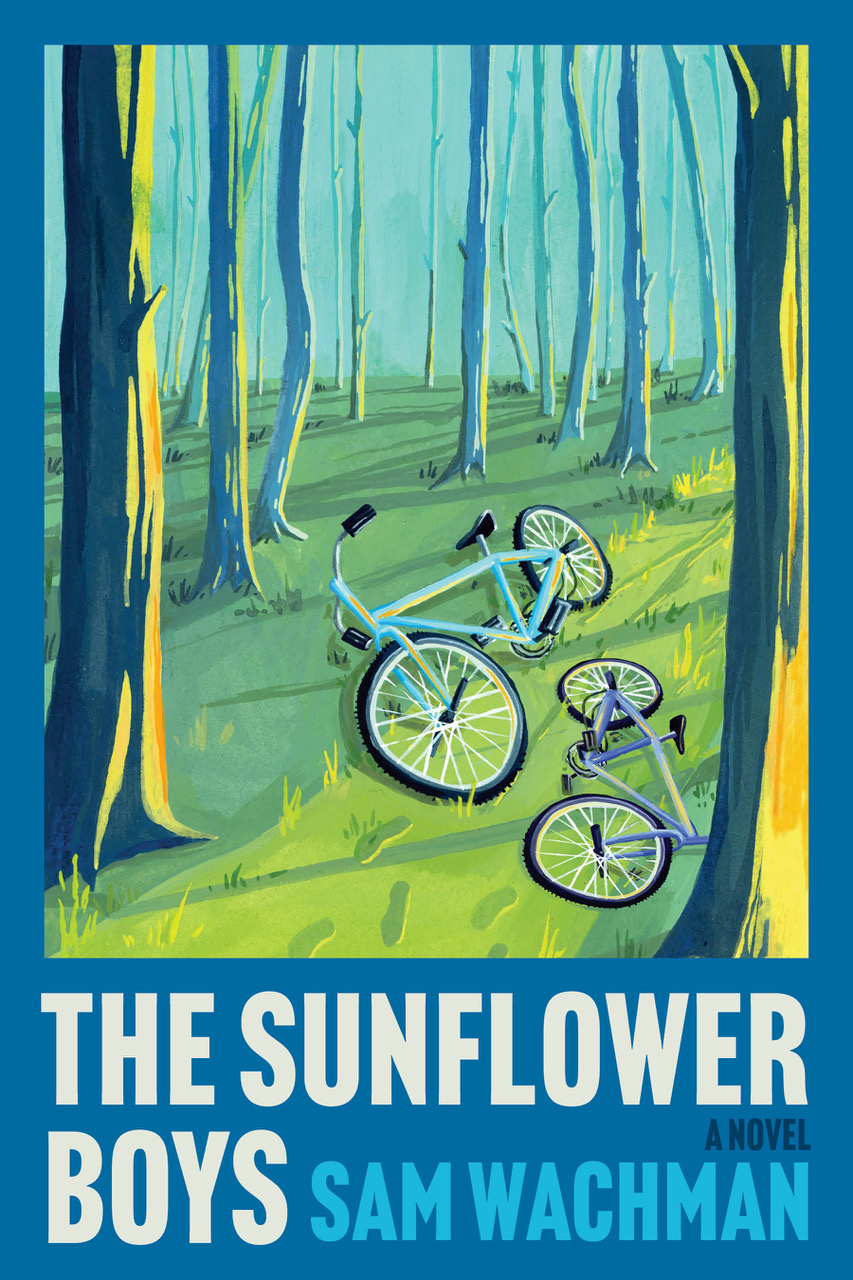 What eventually pushed me to sit down and write was volunteering at a camp for Ukrainian kids just over the border in Romania. All my students who had been scattered throughout Europe made it to this camp and reunited. They had grown up physically, but also emotionally, way beyond their age. They were trading stories. I said, You guys should write a book, and one of them said, We're busy. You do it.
What eventually pushed me to sit down and write was volunteering at a camp for Ukrainian kids just over the border in Romania. All my students who had been scattered throughout Europe made it to this camp and reunited. They had grown up physically, but also emotionally, way beyond their age. They were trading stories. I said, You guys should write a book, and one of them said, We're busy. You do it.
Artem is an artist, and his sketchbook appears throughout the novel. How did that become a narrative thread?
I was struggling with pacing, and trying to organize my draft in a manageable way. So Artem's drawing helped me organize the narrative--but his sketching is also a way of sublimating trauma. I worked in a Boston public school where 80% of the students were from the Northern Triangle of Central America, and they had experienced migration in some of its ugliest forms. One of the most therapeutic things we did was sit together and draw. I still get letters and postcards from my students back in Ukraine, and they often include drawings--which are not all directly related to war and destruction. They're processing things in ways that sometimes adults underestimate.
The book deals with Artem's struggle to accept his own sexuality and others' reactions to it. Can you talk about that?
No matter where you grow up, if you've developed feelings for your best friend, it might kill the friendship. And in Ukraine, you're going to get mixed reactions to being gay. I think there's a tendency in literary fiction to marry the gay and the tragic, and there is certainly a lot of tragedy in this book, but that particular subplot ends on an ambiguously hopeful note. More broadly, masculinity--how a boy should be, how a man should be--is a question Artem is struggling to answer throughout the novel. His relationship with his brother, Yuri, is unambiguously masculine and also tender. I wanted to depict that bond that exists between boys--ultimately caring and affectionate and symbiotic.
How did you research the details of the refugee experience?
Everyone I know from Ukraine has experienced some form of displacement. They are my close friends, so they were willing to talk to me about it. One friend gave me all the details for Artem and Yuri's train journey, and I interviewed a friend of a friend about their later journey through the mountains. I also learned about the people they would have met: some people are opportunists, and will use societal upheaval to their own ends. And some people are good-hearted, but war warps their perceptions and actions. War brings out the worst in most people, and the best in a few people.
Artem and Yuri's dad has been working abroad. How does his absence affect their childhood experience?
Having that long-distance thing with a father working abroad felt like an essential part of Ukrainian childhood in the 2020s. I rarely met my students' dads, because they were often working abroad--in Germany, in Poland, in the U.S. There were plenty of lawyers and doctors who were working construction. Artem's tato is doing this to send back remittances to his sons, who don't really understand why he's not there with them. This is a sacrifice a lot of Ukrainian dads make. Would it be better if he were there and they had much less to live on? It's a complicated question.
How do you think this story may affect American readers' perception of Ukraine?
I hope it will give some context: that people will understand what's at stake, what has been lost, and what is in peril of being lost. A whole thriving country with 44 million people and its own language, culture, literature, cuisine, traditions, in-jokes, its own Internet, its own memes--it is every bit as much a human experience to live there as it is to live in America.
I think Americans think of certain places as synonyms of squalor or war. When the war started, I think most Americans didn't know where Ukraine was, or thought it was a part of Russia, or associated it with Chernobyl--none of which is very good branding. There are problems; it's poorer, and some aspects of life are not up to American standards. But I liked it better than living in the U.S., in some ways. I wanted to give a different angle than the geopolitical headlines we see. I wanted to share a reflection of how it felt: this is what I saw and bore witness to. --Katie Noah Gibson
Book Candy
Book Candy
Abibliophobia and book-bosomed, for example. ThoughtCo looked up "22 perfect words about books and reading."
---
CrimeReads investigated "why an elderly woman character is the perfect serial killer."
---
Heading to a wedding this summer? "Make one of these nuptial-themed books your plus one," the New York Public Library advised.
Rediscover
Rediscover: Sallie Bingham
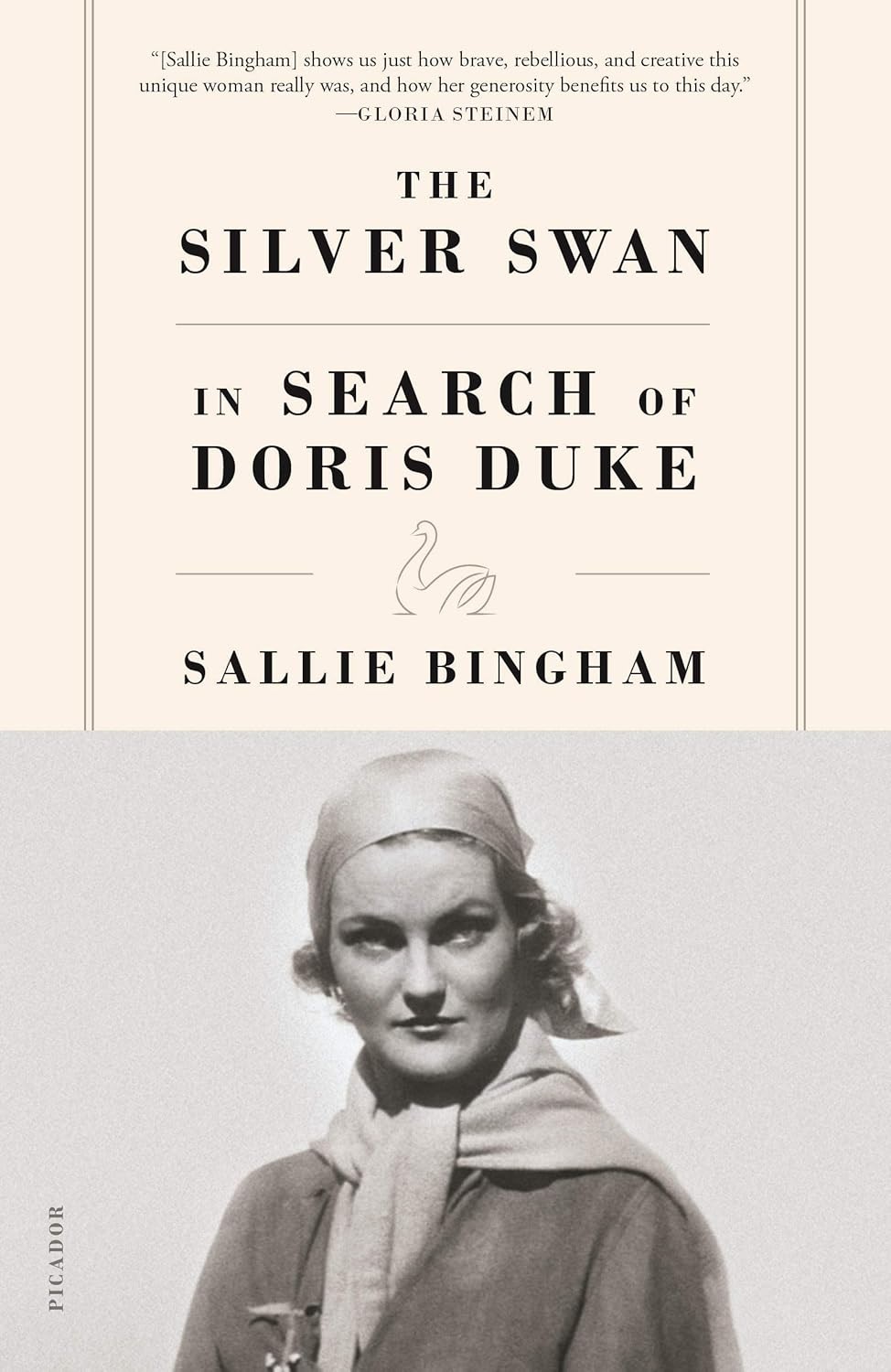 Sallie Bingham, the author, playwright, philanthropist, feminist, and political activist "whose feud with her brother helped topple the Kentucky publishing and media dynasty into which she was born," died August 6 at age 88, the New York Times reported. In 1918, her paternal grandfather, Robert Worth Bingham, bought the Louisville Courier-Journal and the Louisville Times. The newspapers, run next by her father, Barry Bingham Sr., "flourished in the decades that followed. They won Pulitzer Prizes and became known for their liberal political positions. But by the 1980s, the newspaper industry was in financial trouble."
Sallie Bingham, the author, playwright, philanthropist, feminist, and political activist "whose feud with her brother helped topple the Kentucky publishing and media dynasty into which she was born," died August 6 at age 88, the New York Times reported. In 1918, her paternal grandfather, Robert Worth Bingham, bought the Louisville Courier-Journal and the Louisville Times. The newspapers, run next by her father, Barry Bingham Sr., "flourished in the decades that followed. They won Pulitzer Prizes and became known for their liberal political positions. But by the 1980s, the newspaper industry was in financial trouble."
Sallie Bingham had been living in New York City since graduating from Radcliffe College in 1958. She published a novel, After Such Knowledge (1960), and many short stories, but in 1977 she returned to Louisville, hoping to advance her career as a playwright and improve family relations. Her brother, Barry Bingham Jr., was by then running the newspapers, and she attended board meetings for a few years before joining the Courier-Journal's staff as book page editor in 1981.
"She soon began questioning the paper's treatment of its employees, particularly women and members of minority groups, and publicly joined a political committee, violating the company's ethics rules," the Times wrote. Forced off the companies' boards in 1983 by her brother, she eventually put her shares up for sale to the general public, a move that ultimately led to the sale of the entire family business.
Her book Passion and Prejudice: A Family Memoir (1989) condemned the Bingham family, and the system in which it operated, as immoral, misogynist, and racist. Afterwards, Bingham returned to writing novels, including Small Victories (1992), Matron of Honor (1996), and Taken by the Shawnee (2024).
In 2024, she told the Santa Fe., N.M., arts magazine Pasatiempo she would concentrate on historical fiction, noting: "After 30 years as a writer, I've done all I can do in fiction. I'm kind of tired of my own point of view." Two of her last books were nonfiction: The Silver Swan: In Search of Doris Duke (2020) and the memoir Little Brother (2022), about her brother Jonathan, who died in 1964 at the age of 21 after being accidentally electrocuted.
In addition to several plays, her other books include the memoir The Blue Box: Three Lives in Letters (2014); the story collections Transgressions (2002), Red Car (2008), Mending: New and Selected Stories (2011), and How Daddy Lost His Ear: And Other Stories (2025); as well as poetry collections The Hub of the Miracle (2006) and If in Darkness (2010).
After the 1986 sale of the Louisville newspapers to Gannett, Bingham used some of her proceeds to establish the Kentucky Foundation for Women, a nonprofit to support women artists and writers. She served as the foundation's first director from 1985 until 1991, when she moved to New Mexico.
On her blog, Bingham cited her time at the newspaper as inspiration to create the foundation: "I was aware from my years as book editor at the Courier-Journal of the amount of work that women did at the Bingham companies; almost entirely in lower-paid jobs such as distributing mail, cooking and serving in the company cafeteria, working as secretaries or cleaning. These women were about to lose their jobs with the sale of the company."
The foundation released a statement last week praising Bingham's efforts to support women artists and effect social change: "Our sincere condolences go to Sallie's many friends and family.... As we celebrate KFW's 40th anniversary, we will honor the life and work of our founder at our annual event in September 2025. Sallie's impact on Kentucky and the arts will be felt for many generations to come."


